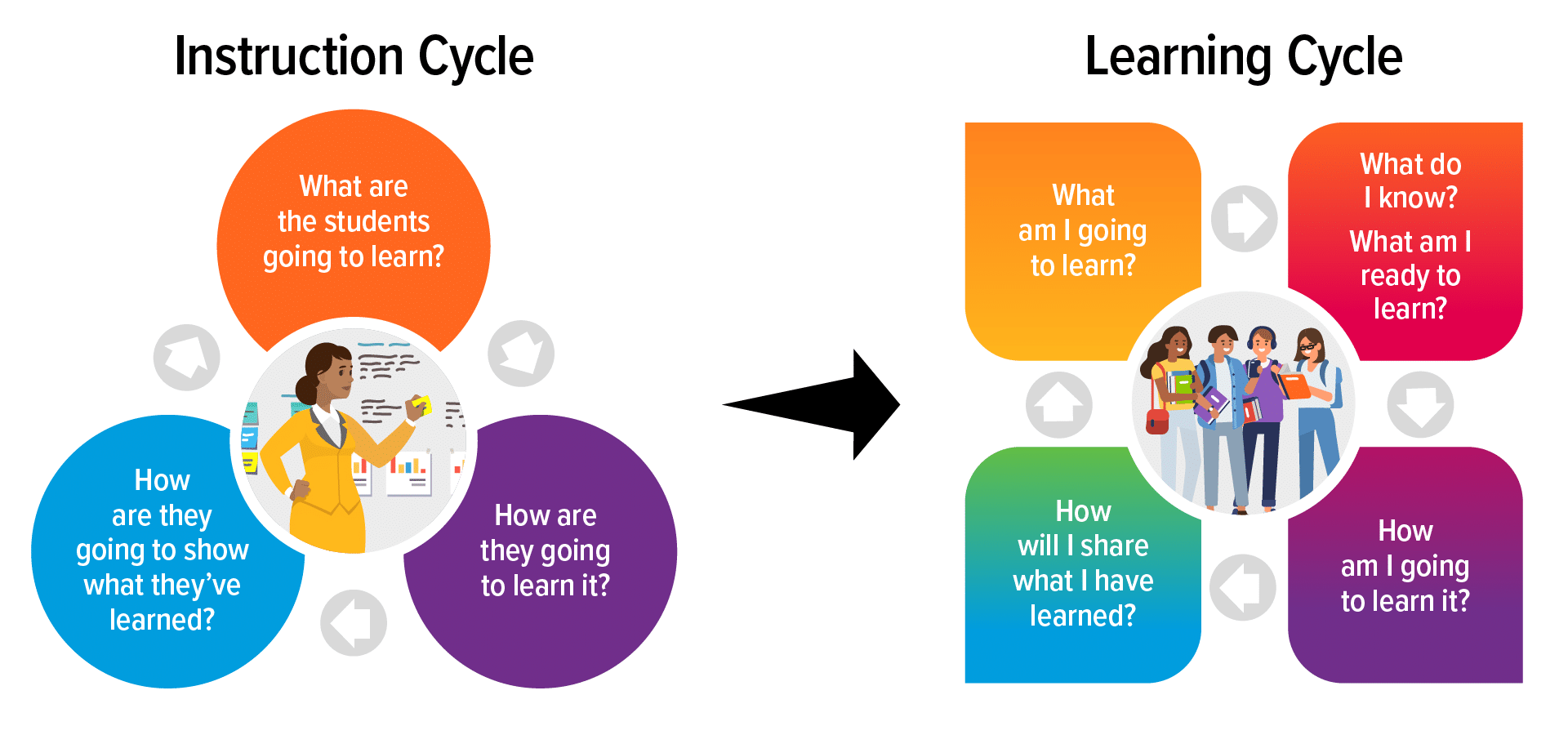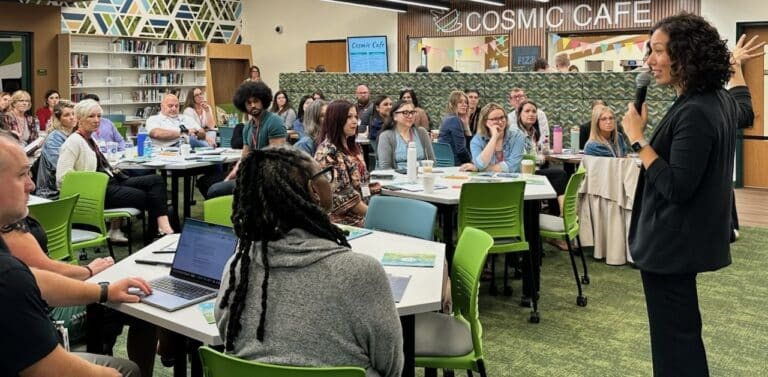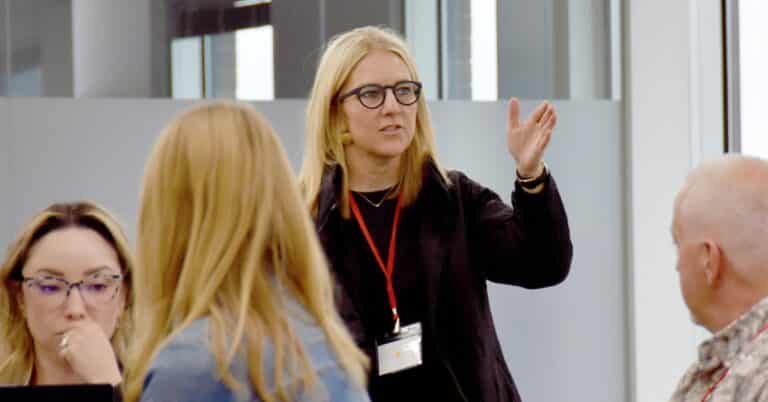Human-centered learning requires that we consider the individual – their needs, interests and lived experiences – when designing for education. Our most recent futures thinking publication, Envisioning Human-Centered Learning Systems, asks us, what would happen if we reoriented teaching and learning systems, expectations and experiences to put a comprehensive view of human development at the center?
Personalized, competency-based learning requires a similar approach for schools and classrooms – what does each student need to thrive, and how can they play an integral role in determining how they will demonstrate what they know and know how to do? As we support states and learning communities in their pursuits of more student-centered practices, it’s important to consider the connections between human-centered learning and personalized, competency-based learning.
Our staff have a few ideas.
We can’t get personal about learning until we see and know the human. Learning has always been personal. For many it has been personally great. And for many others, it has been personally harmful. Thankfully, myriad learning communities across the globe care and value who our learners are first as humans to help inspire deeper and more personal learning opportunities, connections and justice.
– Virgel Hammonds, KnowledgeWorks chief learning officer
For Robin Kanaan, a director of teaching and learning with KnowledgeWorks, personalized learning is at its heart human-centered learning.
“Personalized learning puts the learner at the center of their educational experience,” Kanaan said, stressing the shift away from a teacher-driven learning environment and toward one that is more student-driven.
“If you personalize learning, then you are nourishing the human-centered learning elements,” said Laura Hilger, a director of teaching and learning with KnowledgeWorks, who highlights the value in a more human-centered approach in professional development with adult learners, as well. “Human-centered learning is an ecosystem that includes liberation, belonging, shared leadership and learning as a lifelong personal practice. We are growing the capacity of people to know themselves, know their needs and know how to navigate their learning.”
The educational systems we’ve designed too often produce dehumanizing experiences for learners who do not belong to the dominant group. When it’s done well, personalized learning prioritizes the assets, contributions, funds of knowledge, interests, skills, aspirations, culture and needs of the individual learner. It makes the learner’s humanity visible and valuable. In this way, personalized learning helps systems to become human-centered to ensure our educational designs are capable of adapting to each learner’s unique backgrounds and talents. We need to be as committed to justice as we are to improvement – and personalized learning is a key strategy to operationalize that commitment.
– Eric Toshalis, KnowledgeWorks senior director of impact
For Abbie Everett, a teaching and learning director with KnowledgeWorks, “the connection between human-centered learning and personalized learning is about starting from a place where we expect each learner to be different and we celebrate individual differences. We create conditions for agency but also build the capacity of each learner to be an agent of their learning.”
A human-centered approach to learning considers the ways in which success may be defined differently between communities and the individuals within those communities. It builds lifelong learners who know themselves – and know how to advocate for themselves and others.
How can you align educational systems, structures, policies, practices and learning experiences that support human-centered learning systems?
This was written by former Senior Manager of Communications Jillian Kuhlmann.







